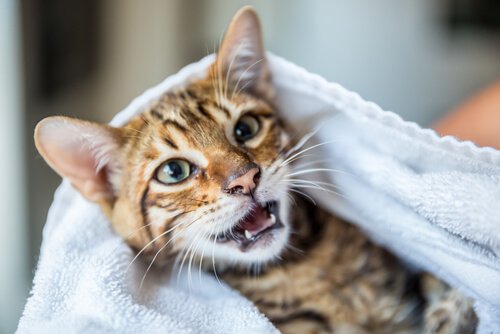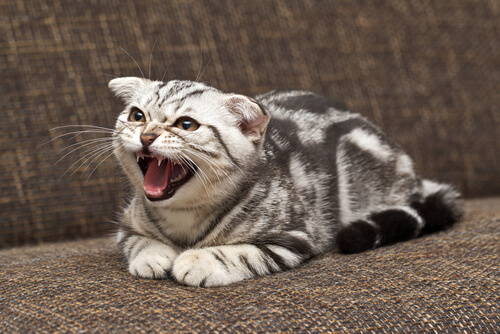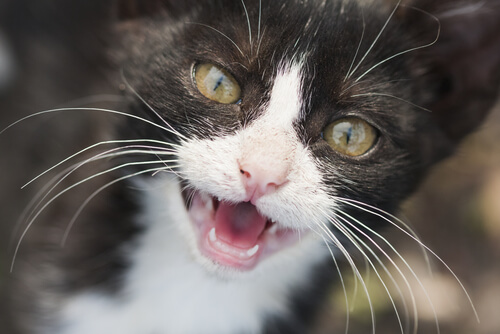How to Take Care of Your Cat's Teeth

We often hear about the importance of caring for our dogs’ teeth. However, no one ever really seems to talk about how to care for your cat’s teeth. You could be forgiven for thinking that this is simply because they don’t really need it. After all, our feline friends are well-known for being very clean animals.
However, no matter what kind of animal you have, when it comes to oral hygiene, your pet will need your help. We’ll tell you all about it in this article.
Cats’ teeth also need cleaning

Just like in people, poor oral hygiene in cats can lead to a build-up of plaque. But plaque doesn’t only make their teeth look bad. It can also lead to bad breath, and serious dental diseases that can make their teeth fall out if left untreated in the long-term.
Don’t fall into the trap of thinking it won’t happen to your cat: studies show that 70% of domestic cats have some kind of dental issues by the age of three.
Obviously, your cat doesn’t know about oral hygiene, and it’s not going to pick up a toothbrush all by itself. It’s going to need your help.
We can’t overstate the importance of caring for your cat’s dental health. Plaque is the first sign of dental issues. It allows harmful bacteria to build up and multiply in your cat’s mouth, and can cause serious diseases if left untreated.
The best foods for your cat’s teeth
Foods and treats specially designed to improve oral hygiene are very useful for eliminating harmful plaque from your cat’s teeth. Treats, dry foods, and even vegetables can promote good feline dental health.
However, these foods only work if your cat chews them properly. It’s the friction of the food on the teeth that helps to remove plaque. So, what happens if your cat doesn’t chew, but swallows the food whole instead? Firstly, it shouldn’t be difficult to tell if your cat isn’t chewing, as it won’t make any noise when it eats.
The solution is to swap this food or treat for a larger one, one that will force your cat to chew.
Finding foods that promote dental hygiene is easy. They are usually labeled, “oral care”, and you can find them in most veterinary clinics and stores.
Do you need to brush your cat’s teeth?

Of course! While foods specially designed to promote oral care are very useful, they are no substitute for actually cleaning their teeth. However, the next question that springs to mind is almost certainly: how?
The first thing you have to do is buy dental cleaning products specially designed for cats. The downside is that most cat toothpaste come in an aerosol. Most cats will be afraid of the sound of an aerosol, making it almost possible for you to convince them to let you clean their teeth.
However, you can also find liquid toothpaste, which comes in small doses to prevent you from using too much. It’s really easy to use. Simply wet a small piece of cloth, apply the liquid toothpaste and brush your cat’s teeth. You can also buy small brushes, specially designed for cats. These can simply be slipped onto the end of your finger, in a similar way to babies’ toothbrushes.
A vet will be best able to advise you as to which brush and toothpaste will be best for your cat.
Remember, human toothpaste is not suitable for animals. Not only could it damage their teeth, but it could also poison your pet.
Follow these tips, and remember to clean your cat’s teeth at least twice a week to avoid a build up of plaque and any serious dental diseases in the future.